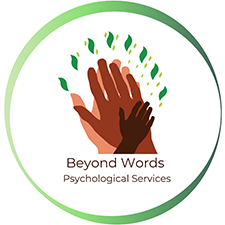Chocolate, Starfish & Your Genuine Worth: A Crucial Lesson Learned as an Adoptee
As adoptees, we often have a strong desire to contribute to the world in significant ways in order to prove the worth of our existence to others. This frequently manifests as people-pleasing, overachievement, burnout, and near constant guilt and shame under the guise of never doing enough. We tend to cultivate relationships with people who reinforce that belief, thus justifying our lack of wellbeing as a necessary and expected sacrifice to maintain the wellbeing of others.
Many of us have been driven by the conviction that it is up to us to “save the world.” Sometimes that world consists of our family or friends, and other times it comprises our larger community or the actual entire earth. Regardless, it creates an impossible situation in which we will never reach our goals and will never “be enough.”
I was defined by this mentality for a long time in my professional role. I believed I had to be everything to everyone and do everything for everyone. This resulted in constant ambition and action which quickly gave way to constant exhaustion and disillusionment.
Of all things, it took glancing at a quote on the wrapper of a Dove chocolate one day to put into terms exactly what I needed to permission to believe: “You can do anything, but you can’t do everything.” So simple, yet so profound.
To name that I could be capable of reaching a goal that I choose for myself, but not required to meet every goal I or anyone else could possibly create for me was like having the weight of the world lifted from my shoulders. It allowed me to genuinely consider what matters to me and how I could prioritize my goal-setting in a way that would feel realistically manageable and meaningful.
It reminded me of a poem I had heard decades before in an AP English class in high school. There are a number of iterations of this poem, “The Star Thrower” by Loren Eiseley, a scientist and philosopher of the 20th century. Here is one version:
One day, as a man was walking along the shore, he looked down the beach and saw a human figure moving like a dancer. He smiled to himself to think of someone who would dance to the day, so he began to walk faster to catch up. As he got closer, he saw that it was a young man and the young man wasn’t dancing, but instead he was reaching down to the shore, picking up something and very gently throwing it into the ocean.
As he got closer, he called out, “Good morning! What are you doing?”
The young man paused, looked up, and replied, “Throwing starfish into
the ocean.”
The man responded, “I guess I should have asked, ‘Why are you throwing starfish into the ocean?’”
The boy stated, “The sun is up, and the tide is going out. If I don’t throw them in, they’ll die.”
“But young man, don’t you realize that there are miles and miles of beach and starfish all along it. You can’t possibly make a difference!” the man exclaimed.
The young man listened politely. Then he bent down, picked up another starfish and threw it into the sea, past the breaking waves. “It made a difference to that one, sir!”
Recalling this poem reinforced the permission I was giving myself to contribute in only the ways that felt sustainable for me. It reminded me that impact is important in all ways, no matter how seemingly minor. Mutual give and take became a necessity, and relentless sacrifice was no longer justifiable.
As adoptees, healing requires that we come to a place of accepting that our worth is inherent simply because we exist; it is not dependent upon how much we contribute. We matter. Period. We have value. Period. We deserve to be and feel equal. Period.
It takes time and intentional practice for those statements to become genuine beliefs. It takes conscious effort to step back from the place of giving without benefitting to receiving without guilt. It often takes surrounding ourselves with people who will hold us accountable for our own significance.
The next time you are feeling like you are not enough, ask yourself:
“What more can I do?” AND “What is my current bandwidth?”
“How much can I give?” AND “How much will it take from me?”
“Why is this important?” AND “Is it important to me?”
“Who is this impacting?” AND “How is it impacting me?”
“Am I doing the most that I can?” AND “Am I offering what I actually have available?”
“Am I performing at my best?” AND “Am I performing at my best under the current circumstances?”
Give yourself explicit permission to give in a way that you find rejuvenating. Honor your worth by making your contributions to the world realistic, sustainable, and self-affirming. Each action matters in itself and every impact holds significance. You deserve to believe that you are more than enough, even when you are not “saving the world.”
